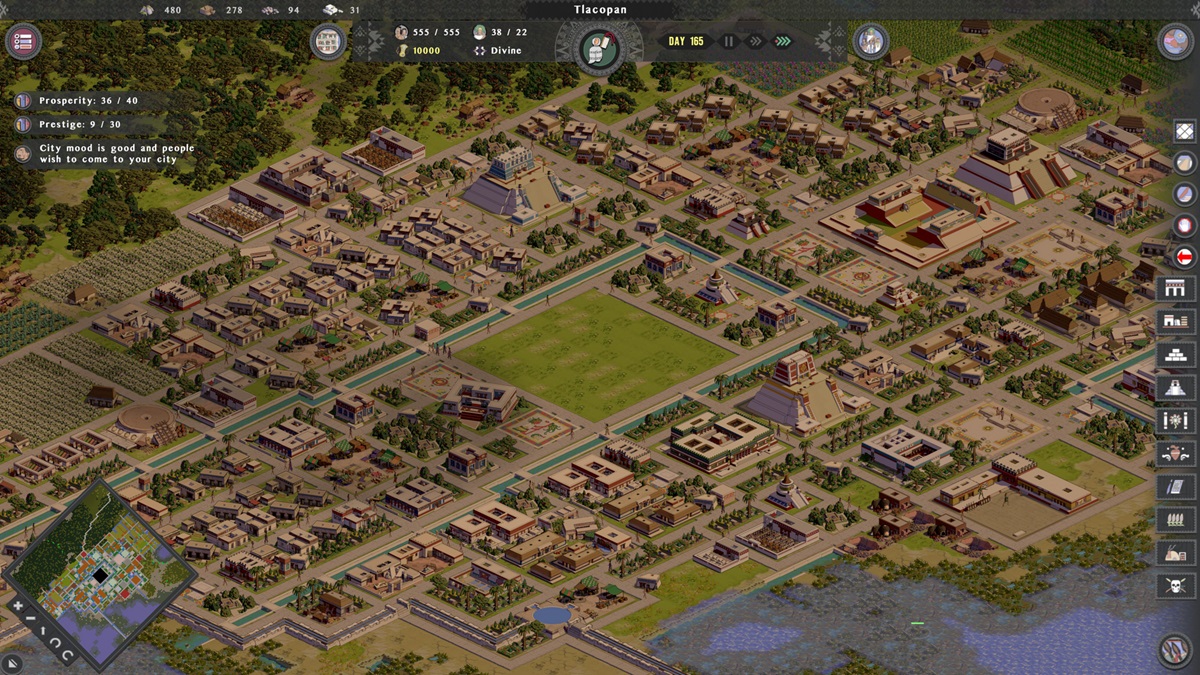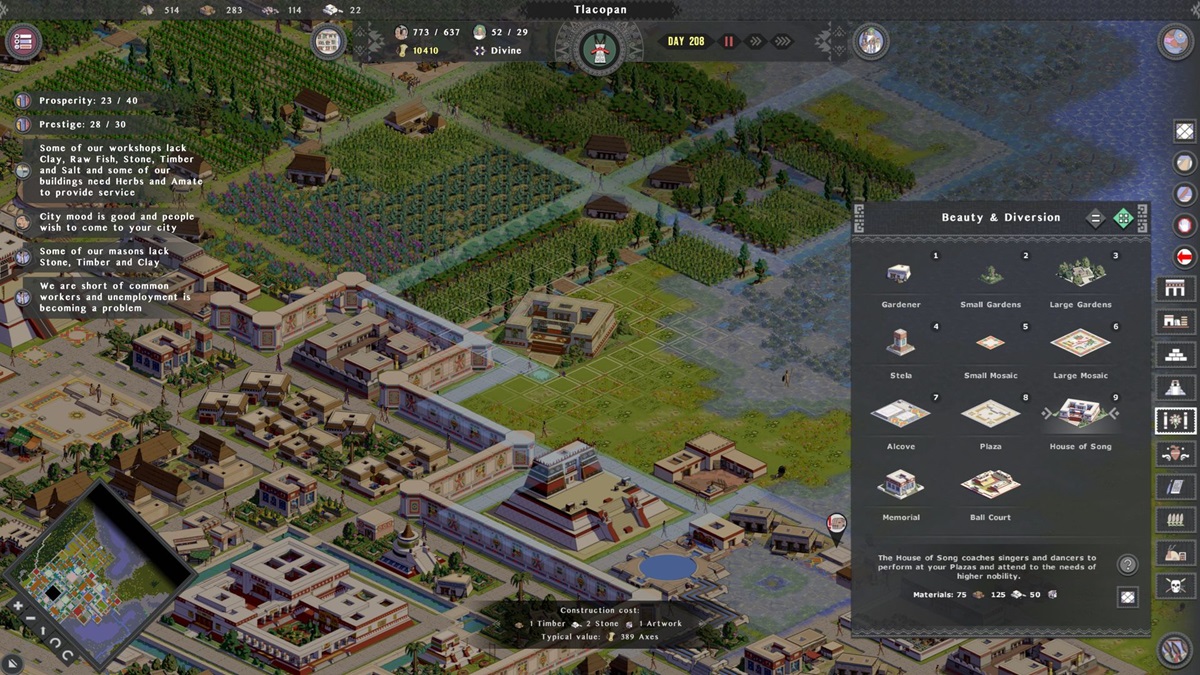Paradox Arc has published some absolute bangers as of late including Nexus 5X, Mechabellum, and Space Trash Scavenger. It has now entered the isometric city-builder genre with developers Bellwood Studios and Perspective Games’ ancient Aztec-themed colony sim Tlatoani: Aztec Cities which has been released in Early Access.
Tlatoani: Aztec Cities (PC)
Developer: Bellwood Studios and Perspective Games
Publisher: Paradox Arc
Released: October 31, 2024
MSRP: $19.99, $15.99 with launch discount through November 10
I have fond memories of playing Egyptian-themed isometric city-builder Pharaoh and its expansion Cleopatra as well as the Roman-themed isometric city-builder Caesar III. Both of the games were released when I was about ten years old, and while I didn’t understand all the intricacies of properly managing and overseeing the cities I built, simply building them and watching them grow was enough to keep me engaged for many hours in striving to build up my city.
Tlatoani aims to rekindle that nostalgic feeling by tasking players with building an entire ancient Aztec empire one city at a time. You’ll still focus on one city at a time, building it into a thriving metropolis in Mesoamerica, but you can eventually expand to have multiple city-states that trade and continue to grow your empire as a whole. It’s a very unique addition to this old-school style of city-building that fixes one of the major problems in the genre. In Early Access, the foundation for this is laid but that’s about it. Most of the focus is still on building a single city which can be done via the Campaign or through six different Scenario missions.

In most entries into the genre, including the classics like Caesar III and Pharaoh, you build up your city, complete your tasks for that mission, and then move onto the next where you’re once again building your city from scratch. In Tlatoani, you’ll instead start a new city perhaps with a separate production focus, before intertwining it into your entire Aztec civilization.
The gameplay itself when it comes to building your city in Tlatoani is for the most part similar to other entries in the genre. You build up your city by adding housing for your citizens while also setting up production lines for goods they require such as access to food, water, and entertainment. As your city grows, your inhabitants will require more—and better-quality—goods.
A huge staple of Ancient Aztec life was religion and so that’s understandably a big part of the needs of your citizens as their ruler in Tlatoani. When building religious buildings you have the freedom to choose which gods to dedicate them to, each with their own unique buffs as well as traditions that must be satisfied to appease them. You can throw festivals and engage in other historic Aztec traditions like animal and human sacrifice.

The best change up to the classic city-builder formula in Tlatoani in my opinion is the symmetry system. In Ancient Aztec history, symmetrical building layouts were a huge part of the tradition. As Tlatoani, it’s up to you to put your architectural prowess to good use and attempt to mirror and maintain symmetry in the layout of your city. This will not only make it easier to satisfy the needs of your citizens but it will also appease the gods and your citizens simply for being better to look at. It’s a fun element when planning out your cities to keep in mind the symmetry of everything.
In its Early Access state, Tlatoani: Aztec Cities is pretty much exactly what I hoped it would be: a spiritual successor to Pharaoh and Caesar III with its city-building elements. What will really make Tlatoani stand out in my opinion is how much they continue to flesh out and build upon the system of building an entire Aztec civilization comprised of many city-states working together. If the developers can figure out how to eliminate the normal burnout of having to start a city from scratch with no real benefit for creating the previous city other than reaching a milestone to unlock the next mission, I think Tlatoani could be a standout title in the genre. But even in its current form, Tlatoani still scratches that classic city-builder itch.













Published: Nov 1, 2024 8:42 PM UTC